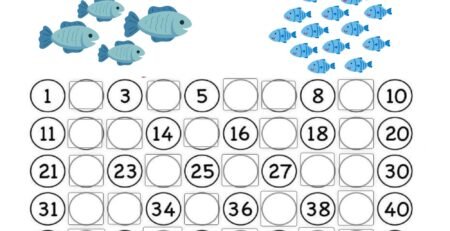The Mysteries of Teenage Behavior: A Parent’s Playbook
Ah, the teenage years—a time of eye-rolling, dramatic sighs, and door-slamming that makes you question if you’re parenting a budding adult or just a hormonal volcano ready to erupt. As parents, navigating this tumultuous period can feel like tiptoeing through a minefield, where every step seems to trigger another explosion. But fear not, for we are about to dive into the bewildering yet fascinating world of teenage behavior and uncover practical steps that you, as a parent, can implement at home to foster a more harmonious and understanding environment.
Decoding the Teenage Brain—Why They Act the Way They Do
Adolescence is a Perfectly Normal Rollercoaster
Let’s not sugarcoat it—teenagers can be a handful. But guess what? All those mood swings, risk-taking antics, and rebellious streaks are entirely normal and even essential for their development. Your sweet, obedient child is now a teenager, exploring new territories, testing limits, and often leaving you wondering, “Who is this stranger living in my house?”
During the teenage years, children begin to seek independence and form their identities, which naturally leads to some friction with parental figures. This phase is not only inevitable but also crucial for their growth into capable, independent adults. Understanding this can help you navigate the challenges with patience and empathy.
The Science Behind the Chaos
Teenage brains are undergoing significant changes. One key factor is the hormone dopamine, which is linked to pleasure and reward. Teenagers experience more intense dopamine surges compared to adults, driving them to seek out exciting and novel experiences—often with little regard for the risks involved. This explains their urge for thrill-seeking activities and why they sometimes act without considering the consequences.
Additionally, peer influence plays a significant role in shaping teenage behavior. The need to bond with their peers and gain acceptance can lead to riskier decisions and behaviors, especially when friends are involved. Understanding these influences can help you guide your teenager more effectively.
Risk and Reward: Why Teenagers Are Wired to Take Chances
Evolutionarily, teenagers are programmed to step outside their comfort zones and explore new horizons. This adventurous spirit prepares them for eventual independence. However, it also means they’re more likely to engage in risky behaviors. While this can be nerve-wracking for parents, it’s important to remember that this phase helps them learn and grow.
Instead of trying to eliminate risk altogether, which is impossible and counterproductive, find ways to channel their adventurous energy into safer, more constructive activities such as Go-Kart, Skiing, Skating, and many other adrenalin-rushing outdoor activities that can be done more safely. This approach allows them to satisfy their need for excitement while minimizing potential harm.
The Importance of Reflective Conversations
Teenagers crave meaningful connections and conversations. Encouraging them to express their thoughts and feelings openly can help them develop empathy and strengthen their social bonds. Reflective conversations—where they speak freely about their dreams, fears, and experiences—are vital for their emotional development. As a parent, facilitating these conversations can provide valuable insights into your teenager’s world and build a stronger, more trusting relationship.
Practical Steps for Parents to Help Navigating Teenage Turbulence
1. Establish Open Lines of Communication
Create an environment where your teenager feels comfortable sharing their thoughts and feelings without fear of judgment. This means actively listening to them and validating their emotions, even if you don’t always agree. Open communication is the foundation for building trust and understanding.
Action Step: Set aside time each week for a family check-in where everyone can talk about their experiences and feelings. Encourage your teenager to express themselves openly, and make sure to listen without interrupting or immediately offering solutions.
2. Encourage Safe Exploration
Rather than trying to curtail your teenager’s adventurous spirit, provide opportunities for them to explore and take risks in a controlled environment. Activities like sports, creative arts, or volunteer work can satisfy their need for excitement while fostering personal growth and responsibility.
Action Step: Enroll your teenager in a local sports team, art class, or community service project that interests them. This not only keeps them engaged but also helps them build valuable life skills and friendships.
3. Teach Emotional Regulation
Help your teenager develop strategies for managing their emotions. Adolescence can be an emotional rollercoaster, and learning how to navigate these ups and downs is crucial for their well-being.
Action Step: Practice mindfulness techniques together, such as deep breathing or guided meditation, to help your teenager manage stress and anxiety. Encourage them to journal their thoughts and feelings as a way of processing emotions constructively.
4. Model Healthy Relationships
Teenagers learn a lot about relationships by observing their parents. Demonstrate healthy communication, respect, and conflict resolution in your interactions with others. This sets a positive example for your teenager to follow in their own relationships.
Action Step: Show your teenager how to handle disagreements calmly and respectfully. Use real-life situations to teach them about the importance of empathy, compromise, and mutual respect in relationships.
5. Foster Independence with Boundaries
Allow your teenager to make decisions and experience the consequences of their choices, but within a framework of clear and consistent boundaries. This helps them develop a sense of responsibility and prepares them for adulthood.
Action Step: Give your teenager more control over their daily routines, such as managing their homework or planning their social activities, while setting clear expectations and consequences for their actions.
6. Support Their Passions
Encourage your teenager to pursue their interests and hobbies. Whether it’s music, sports, or technology, supporting their passions helps them develop a sense of identity and purpose.
Action Step: Provide resources and opportunities for your teenager to explore their interests, such as enrolling them in classes, buying necessary equipment, or attending related events together.
7. Promote Positive Peer Relationships
Help your teenager build and maintain healthy friendships by encouraging them to engage in positive social activities and teaching them how to set boundaries with peers.
Action Step: Encourage your teenager to join clubs or groups that align with their interests. Discuss the qualities of a good friend and how to handle peer pressure effectively.
8. Be Involved Without Hovering
Stay involved in your teenager’s life without being overbearing. Show interest in their activities and be there for them when they need support, but also give them space to grow and learn independently.
Action Step: Attend your teenager’s events, such as sports games or school performances, and regularly check in with them about their day-to-day experiences. Let them know you’re available for support without being intrusive.
9. Educate About Risks and Consequences
Provide accurate information about the risks associated with certain behaviors, such as substance use or unsafe driving, and discuss the potential consequences. This helps your teenager make informed decisions.
Action Step: Have open and honest conversations about the risks of various activities and the importance of making safe choices. Use real-life examples and media stories to illustrate the consequences of risky behavior.
10. Practice Patience and Understanding
Remember that adolescence is a challenging time for both teenagers and parents. Be patient, understanding, and supportive as your teenager navigates this transitional period.
Action Step: Remind yourself that your teenager’s behavior is not a personal attack but a normal part of their development. Take time to reflect on your own reactions and approach each situation with empathy and patience.
Summary
Parenting a teenager is no easy feat, but with understanding, patience, and practical strategies, you can turn this challenging time into an opportunity for growth and connection. By fostering open communication, encouraging safe exploration, and supporting their passions, you can help your teenager navigate the ups and downs of adolescence and emerge as a confident, capable young adult. Remember, the journey may be bumpy, but it’s also filled with moments of joy, learning, and transformation. Embrace the adventure, and you’ll find that raising a teenager can be one of the most rewarding experiences of parenthood.













LEAVE A COMMENT